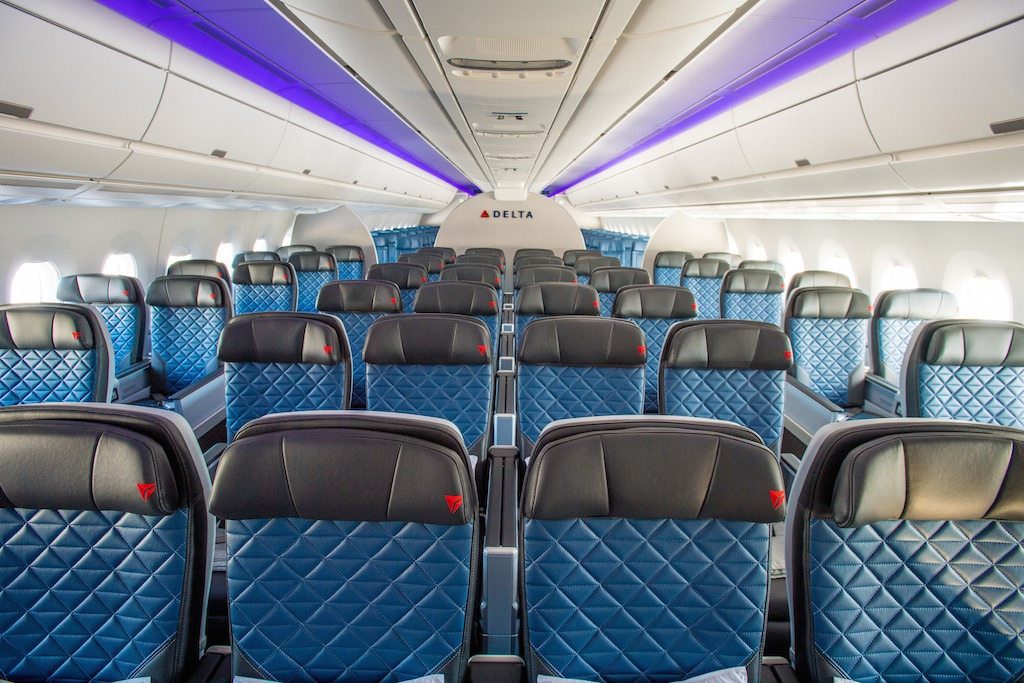Skift Take
Let's remember that this is not a new concept. Continental Airlines introduced automatic check-in about a decade ago, and while some customers liked it, it did not make travel more enjoyable for most travelers.
Airports are the gateway through which we escape our daily drudgery. They allow us to wing our way to vacations, family reunions, even business junkets. But tainting every trip is the prospect of stress and frustration that comes with negotiating an infrastructure that envelops us from fare shopping to seat belt-click.
There’s the ticketing counter, the kiosks, the bag check, the bag claim, security queues, pat downs, crowded gates, boarding pass scans, jet bridge loitering, overhead bin mishegas—you get the idea. And that’s not even a full review of the pain points. There has to be an easier way.
This resistance to the unhindered flow of travelers hasn’t escaped the airlines who are partially to blame for it. They are spending large sums for technology to ease your journey, and the day isn’t terribly far off when your eyeball or fingerprint will guide you through security, airport lounges, and boarding gate. That day, however, is not this day.
Delta Air Lines Inc. recently struck a tiny blow for greater transit efficiency by automatically checking in some passengers for their flights and putting an electronic boarding pass in the traveler’s Delta mobile app. The change eliminates the traditional “It’s time to check in” reminder. Currently, Delta allows auto check-in only for those who use the airline’s mobile app, are traveling domestically, and have enrolled in its SkyMiles loyalty program. Some airlines, including JetBlue Airways Corp. and easyJet Plc, allow you to pay the bag fee upfront when booking, but you still have to go to the counter to drop it off.
“They haven’t escaped the 1920s—seriously”
This raises some obvious questions: Why must airline customers still check in at all? And why is a boarding pass divorced from the ticket sale? Shouldn’t one be able to obtain both simultaneously? And will paper ever disappear entirely from air travel?
“They haven’t escaped the 1920s—seriously,” said Henry Harteveldt, a travel analyst at Atmosphere Research Group. “Airline check-in dates back to the beginning of airline travel when we had paper tickets.”
The process, however, does serve a purpose important to airline bottom lines. It remains a decent proxy for how many people will miss a flight, helping carriers manage no-shows and fill those empty spots. These days, you typically lose your seat if you don’t check in at least 30-45 minutes ahead of a flight. But with ever-rising load factors feeding robust, year-round stand-by lists, tracking no-shows is less important given that the carrier will almost certainly fill the seat.
For airlines like Delta, one procedural hiccup to thinning check-in make-work is the federal mandate that each traveler acknowledge the items prohibited aboard airplanes—i.e., no toxic chemicals or filled gasoline pails may be brought aboard. This currently happens during check-in. Delta deals with this by putting the images of banned items on a screen in its app, ahead of access to one’s boarding pass.
Secondly, auto check-in could create trouble for itineraries that involve more than one airline, said Rhonda Crawford, Delta’s vice president of global distribution and digital strategy. Say you’re flying from Lisbon to Seattle via Amsterdam, and then returning to Lisbon. If you take KLM for the European portion and Delta across the Atlantic, both airlines would need to harmonize their procedures for auto check-in to work. (In the mid-2000s, Continental Airlines experimented with auto check-in for the return trip when a traveler checked in for a round-trip ticket. That function ended after the 2010 merger with United.)
There’s another way in which making your life easier may mean less money for airlines. By reducing the number of times you interact with a carrier, the airline is also cutting the number of times it can sell you a cabin upgrade, extra-legroom seats, additional frequent-flier miles, Wi-Fi access—all add-ons that are commonly offered on airline web sites and at airport kiosks.
“Within two years or so this could become the industry norm”
Moreover, despite years of airline efforts to have you book directly on their web sites, millions of passengers prefer to buy from online travel agencies or, in the case of business travel, must use their corporate travel department. That means the airline doesn’t always have an email or phone number to solicit for that extra revenue.
Still, for travelers weary of paper and bureaucracy, change is coming. Next up may be boarding passes via email for everyone, Harteveldt said, matching the wide use of e-passes currently offered via airline mobile apps. The ubiquity of smartphones also means that airlines are very likely to eliminate paper, one day, and the number of social messaging platforms—from Facebook to WhatsApp to Twitter—offers airlines plenty of places to conduct these transactions, even for people not keen to download a carrier’s app.
“You take a crawl, walk, run approach,” Harteveldt said. “I think within two years or so this could become the industry norm, or at least widely used.”
©2017 Bloomberg L.P.
This article was written by Justin Bachman from Bloomberg and was legally licensed through the NewsCred publisher network. Please direct all licensing questions to [email protected].
![]()
The Daily Newsletter
Our daily coverage of the global travel industry. Written by editors and analysts from across Skift’s brands.
Have a confidential tip for Skift? Get in touch
Tags: airline innovation, airline passenger experience, delta air lines
Photo credit: Delta, the first U.S. operator of the Airbus A350, is no longer making some customers check in for flights. Chris Rank / Delta Air Lines
